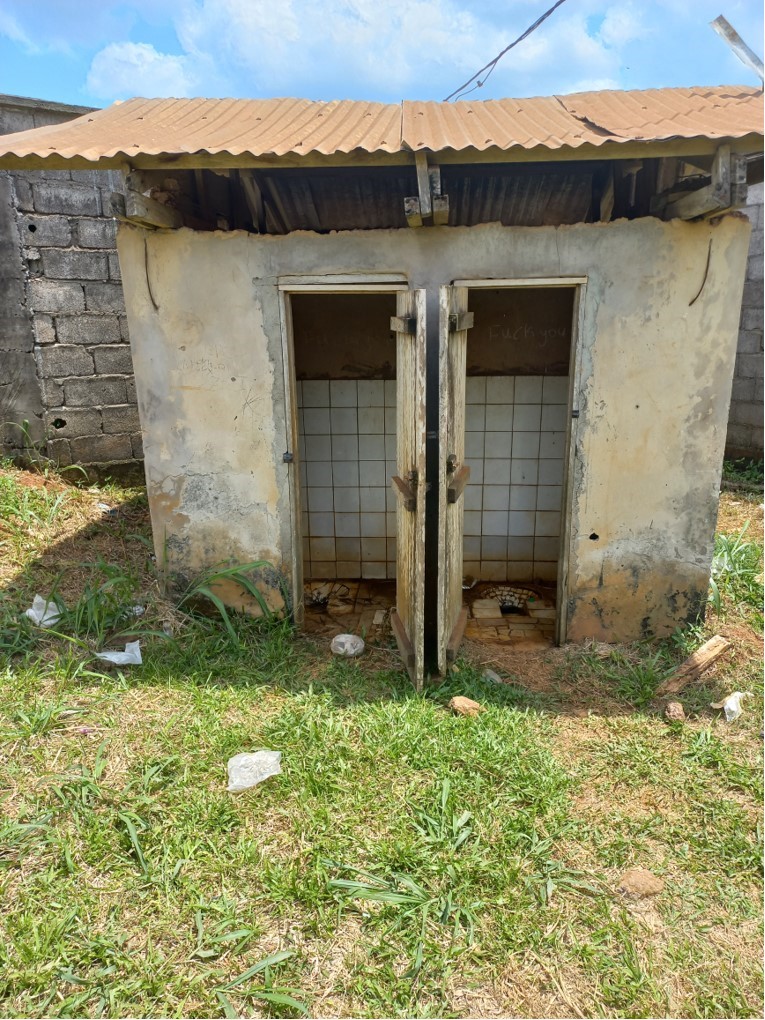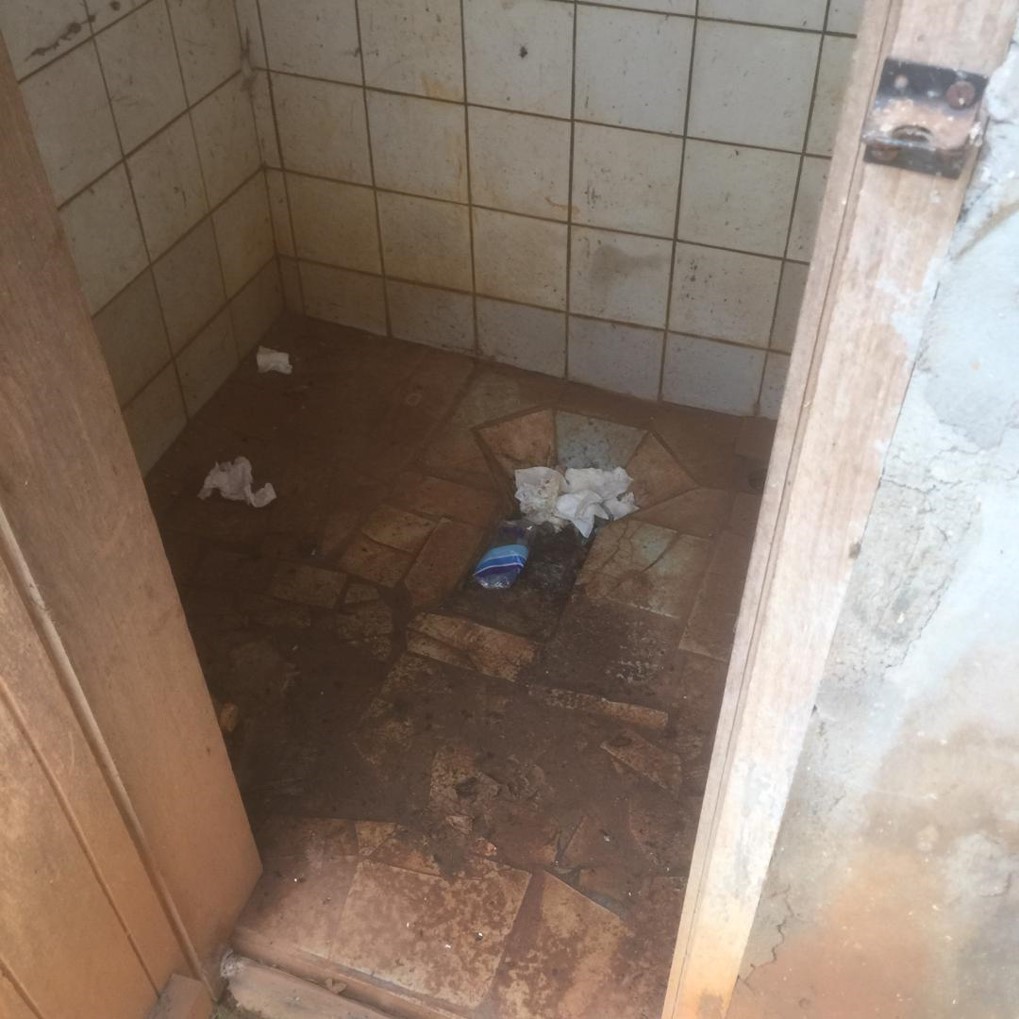There is an acute shortage of toilets and a serious deterioration of the existing ones. The background is parents’ increasing awareness of the importance of education in people and community’s lives. This has led to a sudden increase in pupils’ enrolment rate at the Government Bilingual High School (GBHS) Mbalngong. Coupled with the increased influx of displaced students from the Southwest and Northwest regions of Cameroon. The facilities which the school offers do not exist in other schools in the community.
The excellent performance of our pupils is a clear indicator. Currently, the above 500 pupils and the personnel (46 persons) are using four pit latrines constructed in 2004, which are almost full. One of the toilets is for the teachers and the support staff (men and women), and two are for the 500 pupils (boys and girls). This situation contributes significantly to pupils’ absenteeism and drop out from school. Parents are reluctant to send their children, and in particular girls, to school because pupils will queue for hours and fight to use the very few existing toilets. Because boys and girls share the same toilets, there is a risk for the girls to be infected when boys stand up while using the toilets.
There is also this situation where pupils defecate behind the classrooms or in class during the lessons because they fear being harassed if they go to the toilets, or because they are tired to queue. The result is they become easy targets to other students who bully them, which contributes to lowering their self-esteem. Small children are not able to wait for a long time. They always dirty their pants and wet themselves, adding more work to teachers and creating conflicts between teachers and the administration, and making it difficult for instructors to effectively follow the curriculum. The challenge we are facing now is to build new, more, and adequate latrine facilities for males and females, for boys and girls, disabled all separate
Plan for resolving these water and sanitation problems.
The plan is to build two blocks of four doors each separated by sex and a block of two doors for people living with disabilities in the Government Bilingual High School (GBHS) Mbalngong to enhance pupils’ learning conditions and increase enrolment, retention, and academic success rate.
Objective
To provide a safe, healthy, and conducive learning environment that will increase the enrolment, retention, and academic success rate of boys and girls.
Details
Construction of 10 spaciously ventilated improved latrines with cement blocks, tiles on the walls and the floor, toilet tissue holders, and sinks and water to wash hands. After the construction, there will be ten toilet doors in total: two for the teaching and support staff, three for girls, three for boys and two for people living with disabilities.
Prospective impact
Some of the expected impacts are:
• Higher pupils’ and girls’ enrolment, retention, and academic success rate
• Girls will feel more confident, and stay the necessary years in school to achieve their objective of being
educated
• Improvement of the academic performances of the pupils
• Improvement of pupils’ self-esteem and well-being
• Improvement of relationships between instructors and the school administration
• Teachers’ high productivity
• Better sanitation and hygiene conditions.
Direct and indirect beneficiaries
546 persons are the direct beneficiaries of the project:
• 500 students
• 46 staff.
The indirect beneficiaries of the project are people who participate in annual teachers training workshops and seminars which RDWB and the Ministry of Basic Education organize on the premises of the school. Parents and the youth who attend the summer camp organized by the organisation and its partners at the school will also benefit. This is about 350 additional people every year.
3.2.5 Cost estimate
To realize all the activities before, during and after the completion of the project, a total amount of 6,500,000 FCFA (or 9,909.18 Euro) would be required. The RDWB Management Committee would be able to contribute 1,000,000 FCFA (or 1,524.5 euros). An amount of 5,500,00 FCFA (or 8,384.69 Euro) would need to be mobilised from external sources.




